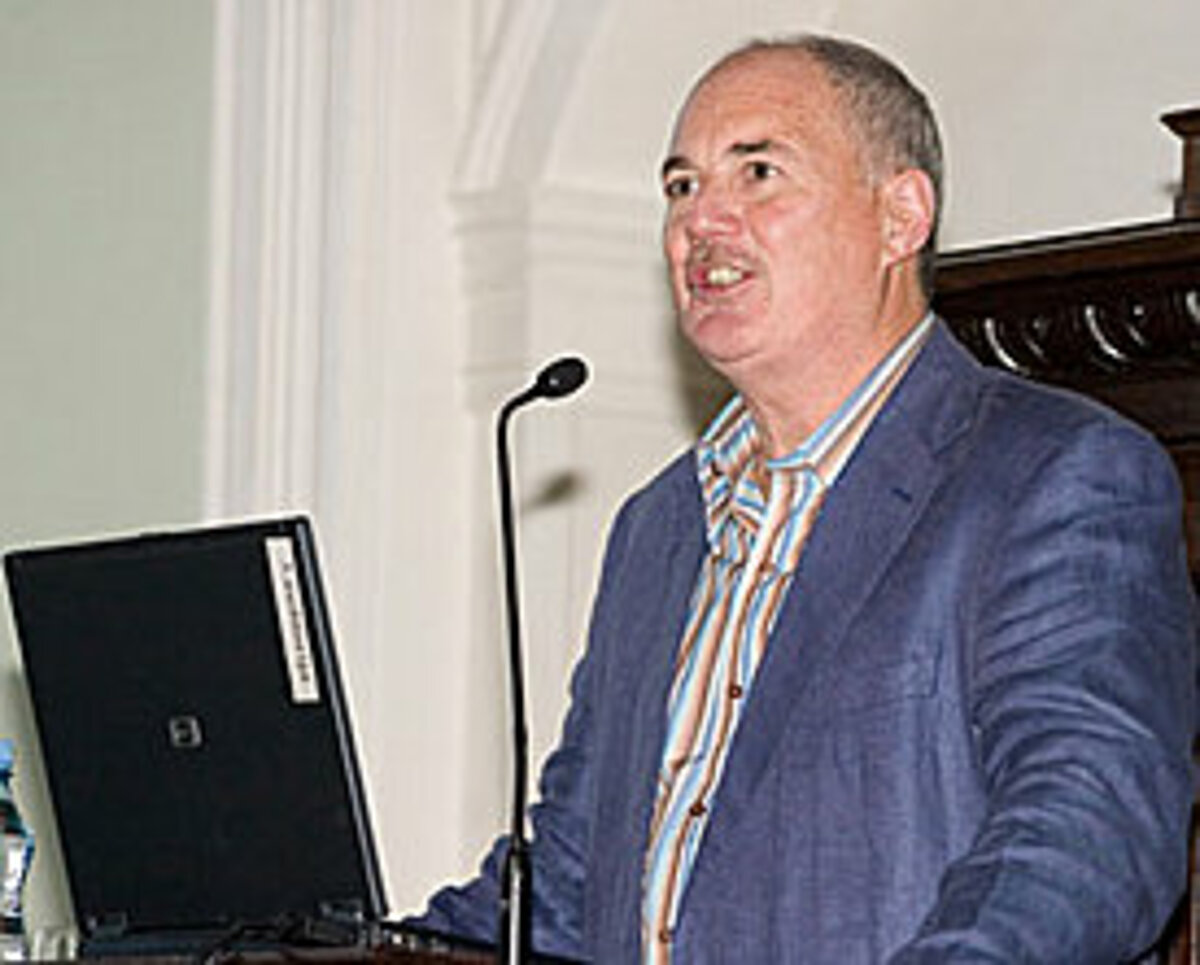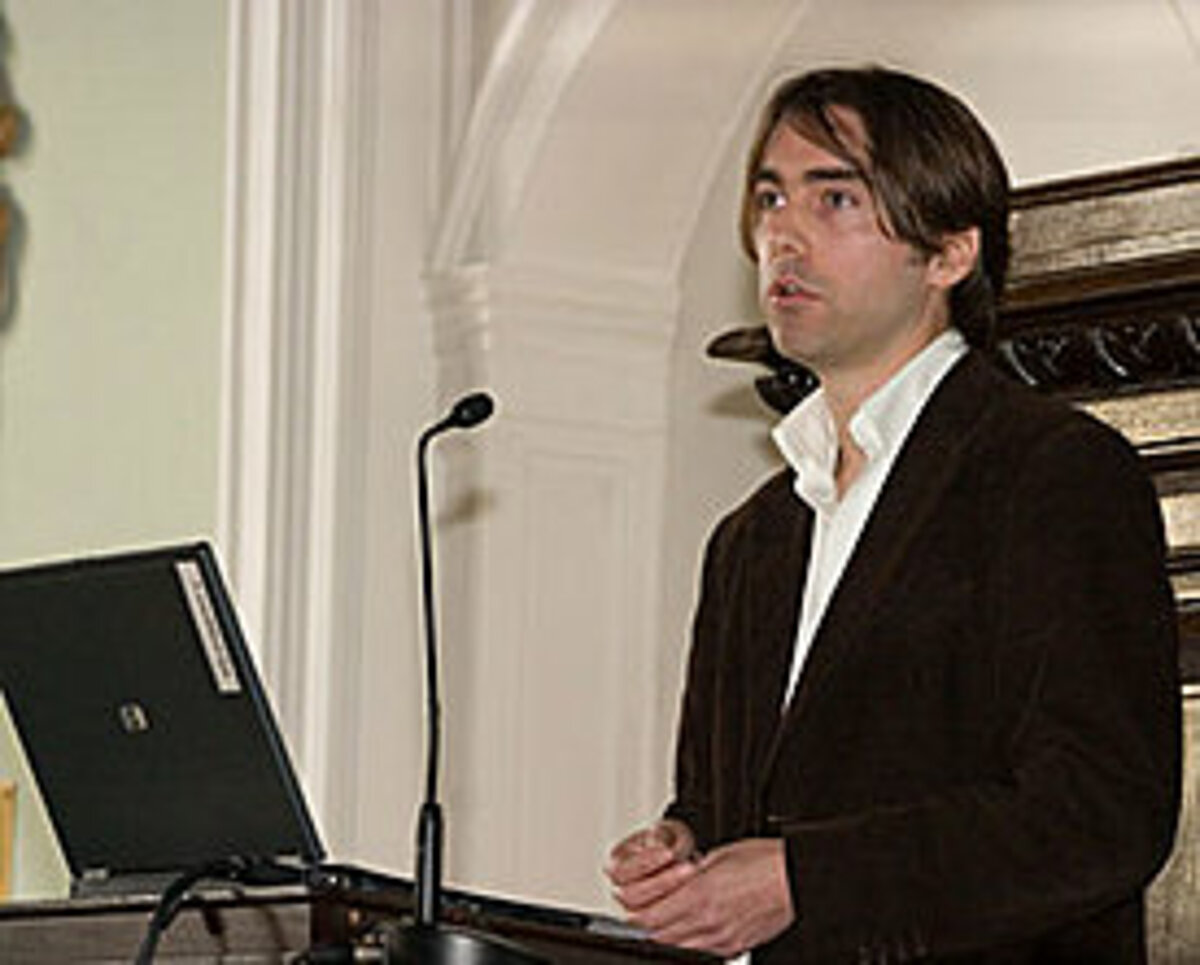
The conference in Latvia was held on November 27 and 28 by the University of Latvia (UL), the British Council representatives in Latvia, the Latvian National Commission for UNESCO, and the Cognitive Science and Semantics Centre of the University of Latvia.
The conference was opened by Chris Sinha, a prominent linguistic psychologist, (University of Portsmouth, UK) with a lecture on the evolution of human language ability influenced by genetic and cultural factors, and by Tim Lewens (University of Cambridge, UK), a philosopher of science, with a presentation which traced the development of Darwin’s main concepts to contemporary assumptions about evolutionary mechanism.
Following Darwin’s steps, the conference dealt with such issues to which a human being came by contemplating who we are, what is around us and how we have arrived here – such as we are. While trying to get closer to the implications of Darwin’s evolutionary theory and the way we are accustomed to think about Darwin, it became clear that it is not one and the same thing. Darwin has refrained from drawing conclusions about the determination of a human being, consistently staying in the framework of natural sciences and not engaging in religious and philosophical discussions. At the same time, philosophers have tried to reconsider the question of human freedom in the light of the theory of natural selection, balancing on the edge of human irreducibility.
The lectures mainly provided an opportunity to look behind the distinction nature versus culture in the case of human evolution. It is this distinction which indicates the possible uniqueness of human species that highlighted the most philosophically provocative implications of Darwin’s theory.
Representatives of various professions had been invited to the discussion about human evolution, so that each with his or her vision and all together could arrive if not at an answer, then at least at a more specific question about what existence and human being are. The discussion, like most of the papers, led to the recognition that Darwin’s theory of natural selection is unquestionably considered to be a most significant step in the further development of various sciences, moreover, it still retains the potential of suggesting new perspectives in biology, sociology, psychology of language, cognitive semiotics and also philosophy.
Among the wide range of conference papers it was possible to distinguish research in the history of philosophy and ideas related to purposefulness, fortuity, evolution and issues of life (these reflections touched upon the ideas of Aristotle, Schelling, Kant, Freud, Nietzsche, Kripke, the assumptions of Vitalism, 19th century French Social Darwinism), as well as papers that addressed a specific problem within the evolutionary theory (such as human language and syntax, the concept of a disease, the determination criteria of an individual as a separate object, the definition of species, homosexuality as the paradox of the theory of natural selection).
At the end of the conference, Chris Sinha made a presentation on the character of Amazon Indian tribe amondava language at the premises of Latvian Contemporary Art Museum. This Indian dialect is unique due to the fact that very likely there is no abstract concept of time, which causes a lot of questions about time, space, number and the universality of other forms of human perception of the world.
The two day conference was enriched by its broad audience, with a shared interest about life that could be sensed among biologists as well as philosophers. While formally it can be grasped fairly well, the content of existence is still a mystery – a secret, which Darwin has managed to mark most clearly.
Translated by students of the professional study programme Translator of the University of Latvia.
- <link http: foto.lu.lv arhiivs k_nov index.html _blank>Photo gallery
Translated by students of the professional study programme Translator of the University of Latvia.

 LU konference
LU konference
